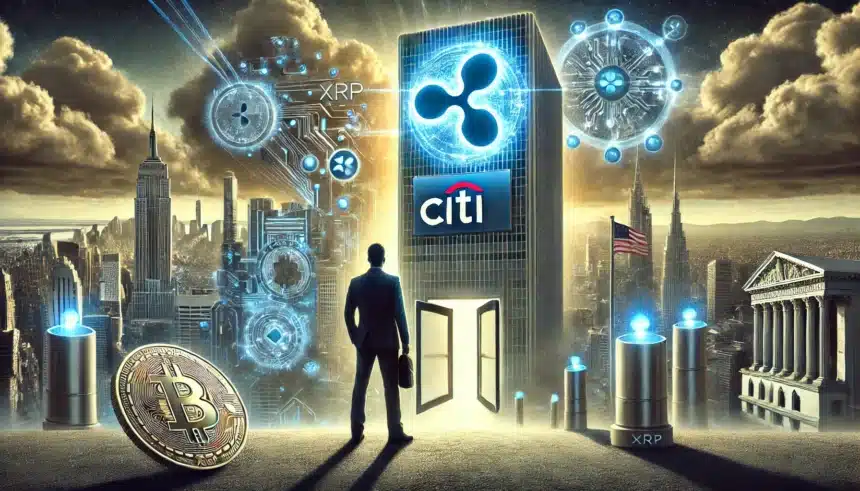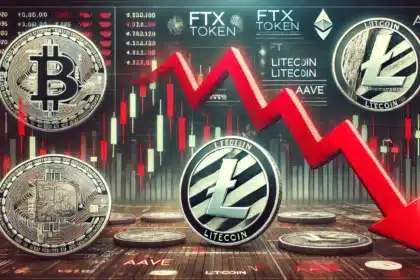In an astonishing disclosure highlighting the accelerating tensions between the cryptocurrency realm and standard fiscal establishments, Ripple’s leader Brad Garlinghouse lately uncovered that his lifelong bank account was unexpectedly terminated. Citigroup, with whom Garlinghouse had retained a 25-year affiliation, granted him simply five times to evacuate his assets and relocate his banking administrations somewhere else.

The justification? His noticeable part is in the digital currency area. His disclosure roused blended responses from neighbourhood experts, who theorized on whether this portrays expanding distrust about crypto from standard banks or in the event that it was a special case. In any case, some accept it very well, which may be a sign of battles to come between the administering class of conventional budgetary administrations and the burgeoning field of computerized monetary forms.
The Reason Behind the Closure
During his keynote at the annual DC Fintech Week conference, Ripple CEO Brad Garlinghouse delved into his recent experience with Citibank and the implications it held for the growing fintech and crypto industries. In his characteristic blunt yet thoughtful manner, Garlinghouse recounted how Citibank officials had politely but frankly informed him that the bank could no longer maintain his personal checking account due to the regulatory turbulence that his explicit involvement in the crypto sector attracted.

Though the discussion retained a civil tone, Garlinghouse was struck by the precautionary stance that increasingly compels established financial institutions to shun accomplished figures within legally operating yet emerging industries based solely on subjective judgments of uncertain legal risks. Looking ahead, he emphasized the pressing need for rational regulation that encourages sector innovation without unduly punishing success or staining entire fields with the sins of isolated bad actors.
Growing Tensions Between Crypto and Traditional Finance
The mounting pressures placed on traditional banks have forced one notable leader to change financial partners. Regulatory oversight from agencies like the SEC has increased around cryptocurrencies, generating challenges for institutions interacting with the emerging industry. Garlinghouse highlighted this debunking as reflective of broader struggles facing other crypto executives seeking banking services.
Frustrated by an unclear regulatory environment, particularly the ongoing legal case determining XRP’s status, Garlinghouse emphasized the difficulty businesses face operating securely in such uncertain conditions. The protracted battle with the SEC over categorizing the company’s digital token left Ripple’s CEO emphasizing the need for definitional resolution. He argued that the lack of regulatory certainty handicaps firms’ ability to adequately mitigate risks within the United States.
Ripple’s Ongoing Legal Battles
Ripple’s long-standing legal conflict with the SEC has had a profound impact on the company. Despite the hurdles, Garlinghouse remains optimistic about the future, especially after a recent court decision declaring that XRP is not inherently a security. This ruling, viewed as a landmark victory for Ripple and the broader crypto sector, has bolstered confidence that more comprehensive and favourable regulations could be on the horizon.
A Call for Regulatory Clarity and Global Expansion
Looking forward, Garlinghouse alluded to anticipating potential shifts in government oversight after forthcoming elections. He envisions future leadership could champion progressive reforms balancing technological advancement with prudent rules to provide the digital asset sector with much-needed direction.
However, prior to any reforms materializing, he counsels domestic crypto enterprises to contemplate overseas registration as a protective measure against unintended legal issues. According to Garlinghouse, jurisdictions abroad have instituted relatively predictable regulatory environments which could appeal more to cryptocurrency startups aiming to innovate without perpetual worries of prosecution.

Optimism for the Future of Crypto
Meanwhile, facing his own difficulties, Garlinghouse still sees a bright future for cryptocurrency overall. He noted the rising need for crypto monetary services, such as standard exchange-traded funds focused on XRP, which he thinks cannot be delayed indefinitely. The accomplishment of bitcoin ETFs has shown powerful demand from regular and professional financial players, and Garlinghouse predicts comparable products concentrating on additional cryptos like XRP will quickly become available.
Conclusion
While the termination of Ripple’s chief executive’s banking access came as a shock, it serves as a potent symbol of the constantly shifting challenges confronting the cryptocurrency sector in America. Citibank’s manoeuvre, which Garlinghouse doubts the legitimacy of, reflects a more encompassing development of long-standing financial establishments putting distance between themselves and the crypto marketplace due to worries about regulations. In spite of this, visionaries like Garlinghouse preserve optimism that the industry will continue to flourish, projecting progress both within and outside of the bounds of America thanks to ongoing lawful wins and a rapidly expanding worldwide demand for innovative digital currencies.
Stay tuned to TheBITJournal and keep an eye on Crypto’s updates. Follow us on Twitter and LinkedIn, and join our Telegram channel to be instantly informed about breaking news!





























